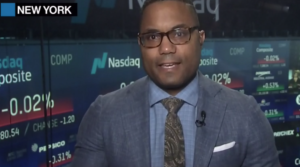Analyst Gordon Johnson Forecasts Tesla Stock to Plummet to $20 Per Share

Gordon Johnson, a prominent analyst at GLJ Research, has issued a stark warning regarding Tesla's (TSLA) stock valuation, suggesting the electric vehicle giant's shares could be worth as little as $20. In a tweet on September 4, 2025, Johnson stated, > "B/c if they don’t, they’ll realize they paid $330/shr for a stock that’s worth, maybe, $20/shr." This prediction implies a dramatic decline from recent trading levels, which he cited as approximately $330 per share.
Johnson's bearish outlook is rooted in what he perceives as deteriorating fundamentals for Tesla. He has consistently highlighted concerns over declining sales growth and anticipated margin pressures. For the third quarter of 2025, Johnson projects Tesla's deliveries to be around 420,000 vehicles, significantly below the Wall Street consensus estimate of approximately 485,000 vehicles. This forecast underscores his belief that the company is facing weakening demand in key markets and intensified competition.
The analyst's $20 price target stands in stark contrast to the broader Wall Street consensus, where the average one-year price target for TSLA is around $307.23, though forecasts range widely from a low of $19.05 to a high of $500.00. While Johnson is known for his consistently pessimistic views on Tesla, some analysts, such as Ark Invest, maintain more bullish delivery estimates, citing the potential impact of new models and expanding infrastructure.
Tesla has indeed faced challenges, with Q4 2024 deliveries missing targets and Q2 2025 deliveries of approximately 470,000 vehicles falling slightly below some consensus estimates. The company is navigating a global slowdown in EV demand and increasing competition from both traditional automakers and new entrants, particularly from China. These factors contribute to the ongoing debate among investors regarding Tesla's true market value and future growth trajectory.
Johnson has previously alleged that Tesla's stock price is artificially supported by options market activity rather than reflecting its underlying business performance. The divergence in analyst opinions highlights the significant uncertainty surrounding Tesla's near-term growth and its long-term valuation, as the market weighs fundamental performance against speculative trading and future technological advancements like Full Self-Driving (FSD) and AI.